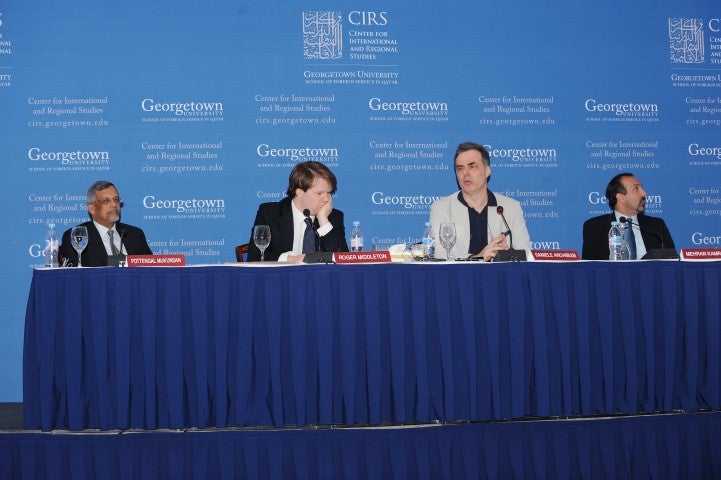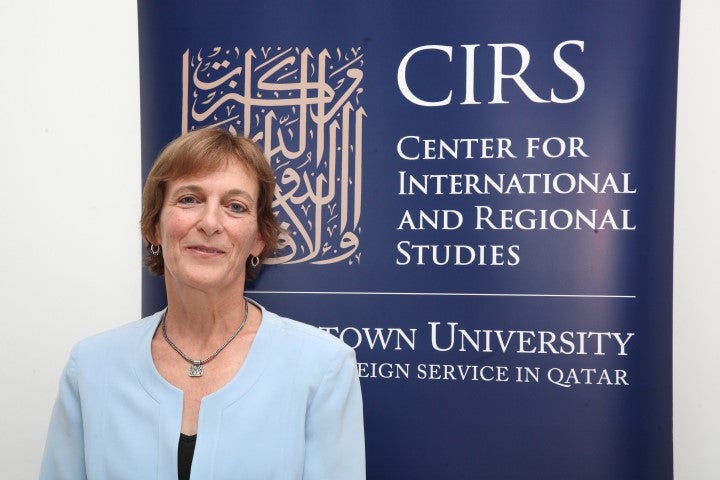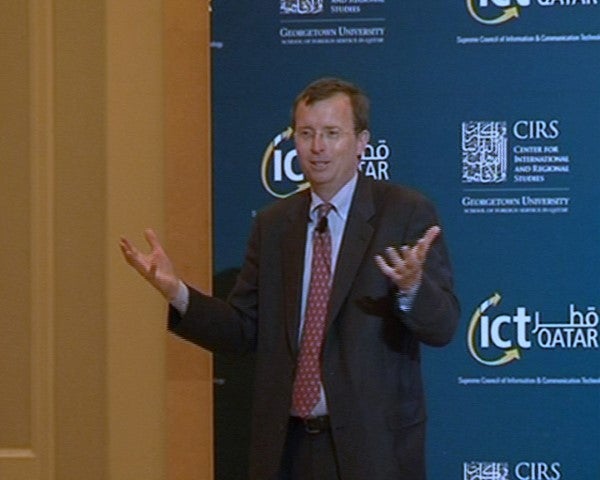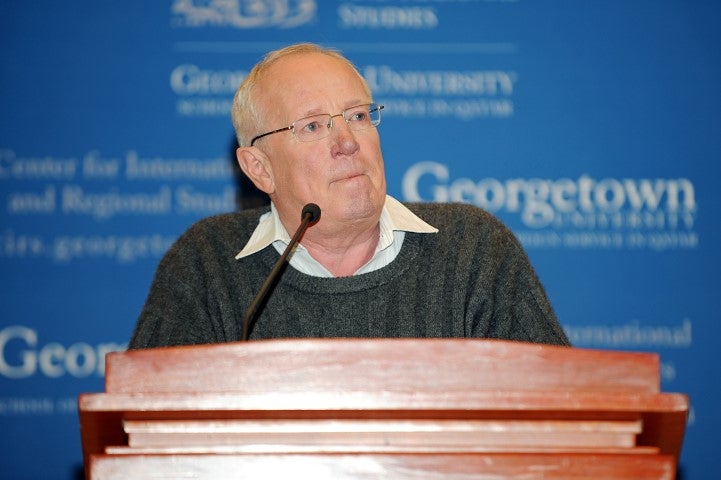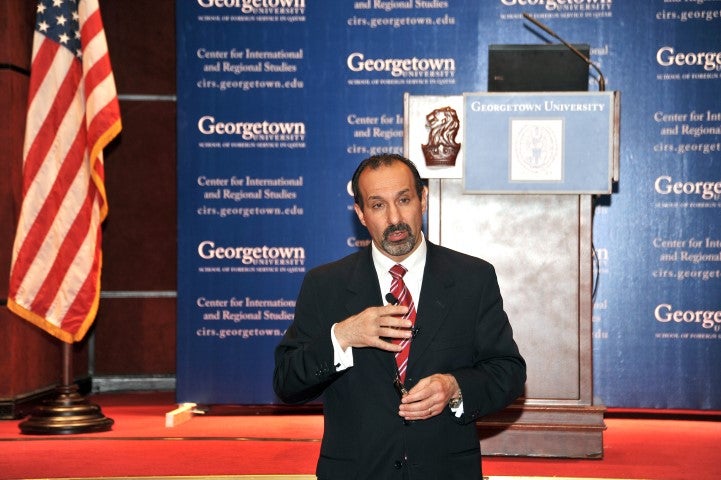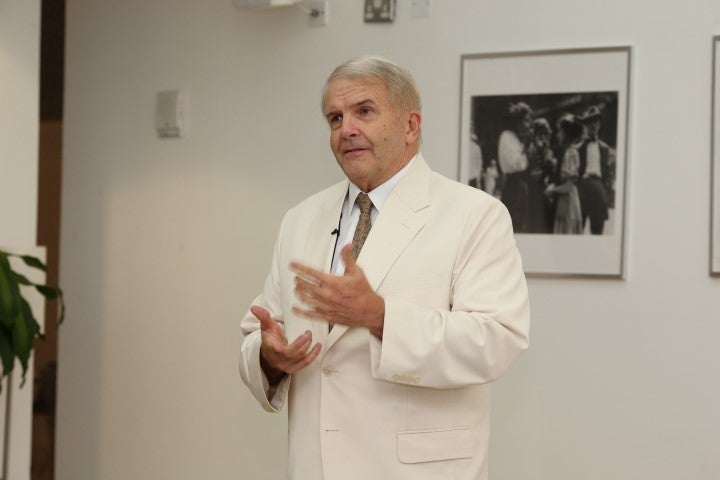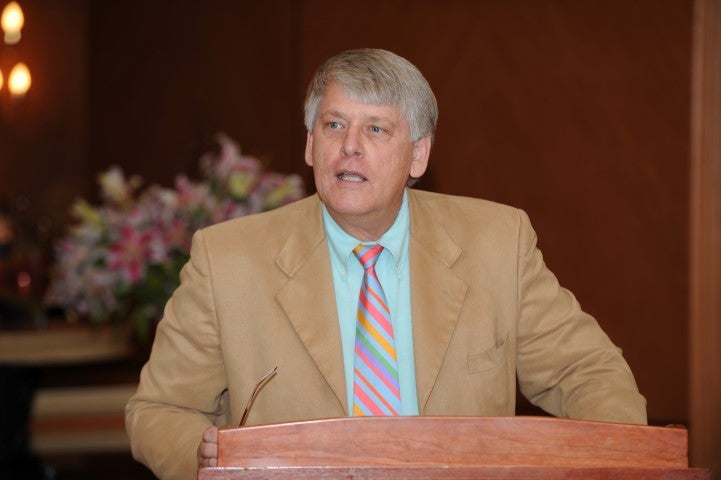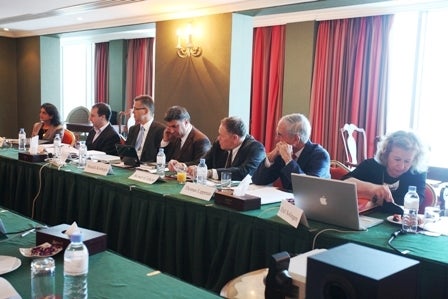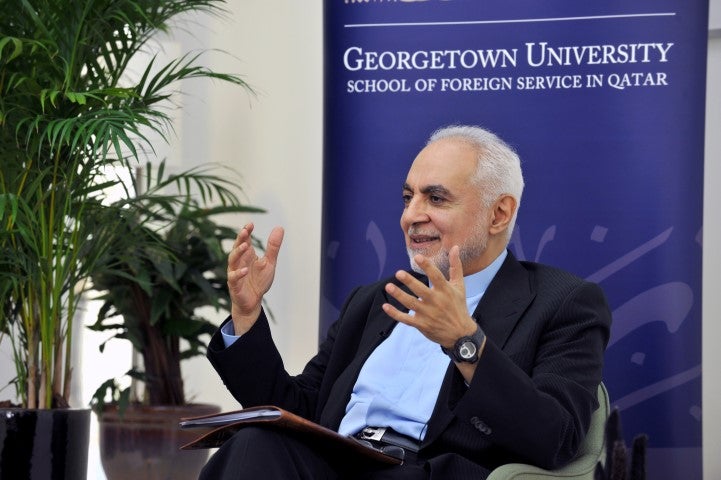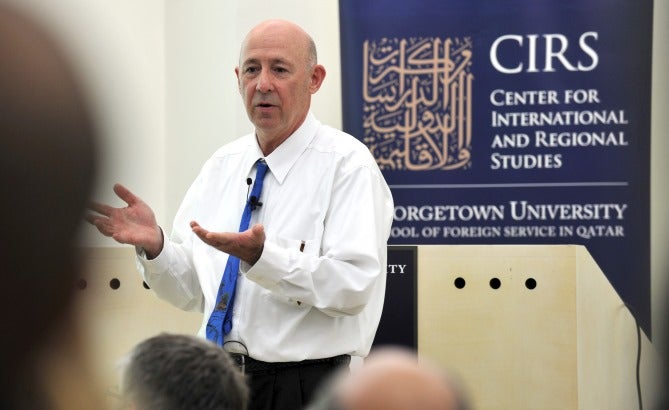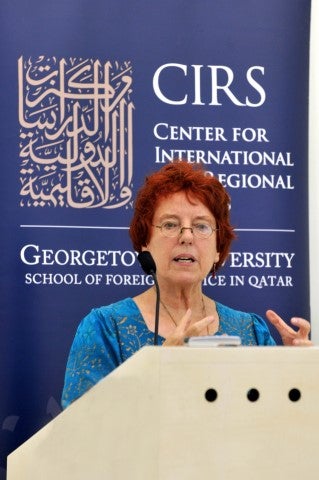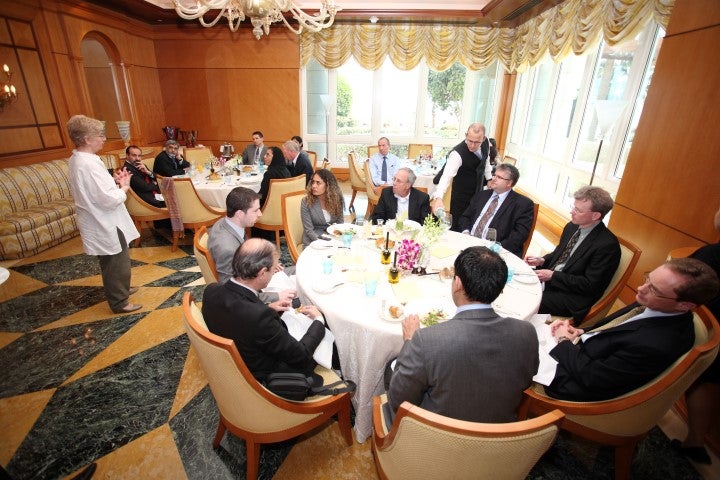
Paula Newberg on Moving Pakistan and Afghanistan Away from War
The Director of the Institute for the Study of Diplomacy at Georgetown University in Washington DC, Paula Newberg, gave a lunch lecture on March 11, 2010 titled "Reconciling Past and Future: Moving Pakistan and Afghanistan Away from War?" to a group of Qatar-based diplomats and Georgetown University in Qatar faculty and staff. Newberg’s talk focused on…
